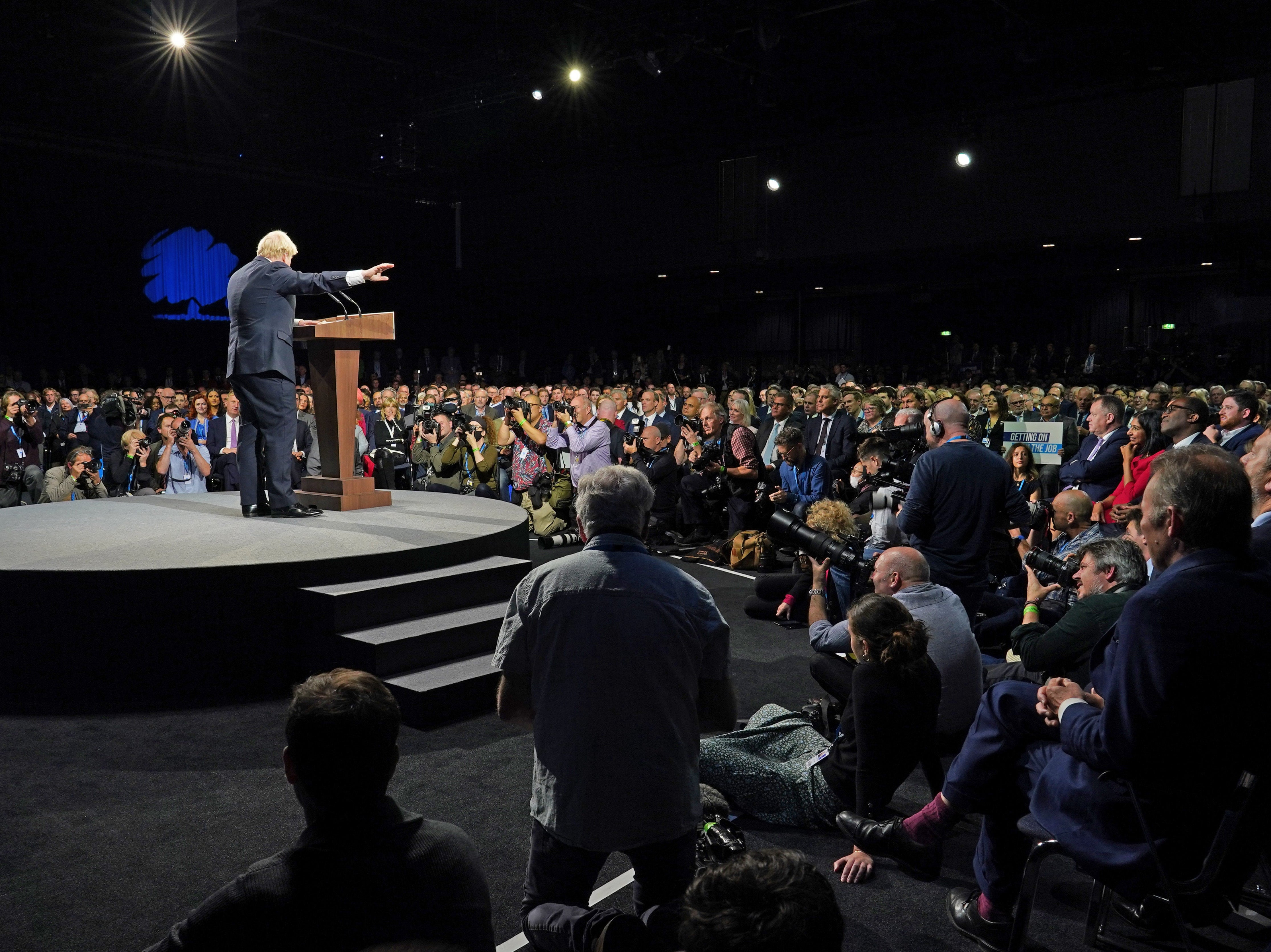Boris Johnson’s speech made little sense – but it was ruthlessly effective politics
The prime minister has one big idea, which is enough to overcome contradictions, says John Rentoul


William Hague, one of the most astute observers of New Labour, says in the new BBC Blair and Brown TV documentary: “Tony Blair saw himself as a bridge. Some leaders see themselves as a personal bridge that can connect things that can’t normally be connected, and it’s a great skill in a leader. He could connect the traditional Conservative voter with the Labour Party.”
Boris Johnson showed in his latest speech that he sees himself as the bridge going the other way, linking two different, apparently incompatible islands. He can connect the traditional Labour voter with the Conservative Party.
Blair did his bridging with more elegance and rigour, and tried to argue with his party that it was the right thing to do in principle as well as in practice. Johnson’s effort is more like a huge improvised pontoon made up of a jumble of contradictory ideas. So his speech didn’t make much sense in policy or logic, but as an assembly of feelings and associations, it was a work of genius.
It is no use economists lining up to point out the flaw in the idea that ending the free movement of workers will bid up wages – that this will lead to higher prices that will wipe out any gains that might have been made. It isn’t about economics, it is about respecting British workers, who will hear a politician standing up for them against competition from cheaper central European labour.
It is no use commentators drawing attention to the obvious clash between the prime minister’s mindless optimism and the miseries suffered by the people groaning under his yoke: the end of the universal credit uplift, the rise in energy bills and next year’s tax rises. The cheerful rhetoric of uplift and hope is enough if all our problems are the “stresses and strains” of adjusting to a new life outside the EU.
It is no use the Labour Party saying that the Conservatives have been in power for 11 years, and that they are responsible for all the ills of the country against which Johnson railed in his speech. The broken model of the economy; the “uncontrolled immigration”; the running down of the NHS; the social care crisis. This is a new government, defined by Johnson personally, and powered by the fuel of Brexit.
That means that the prime minister can get away with all sorts of contradictions that would normally make a politician look foolish. He can claim that Margaret Thatcher would back his plan to raise taxes to spend untold billions on the NHS and a permanent extension of the role of the state into social care. A plan that looks like nothing so much as the New Labour tax rise to pay for raising NHS spending to the European average in 2002.
He can face both ways on immigration, resorting to a telling use of demotic language: “I know that there are some who now tell us that we are ungenerous and unfeeling in our attempts to control our borders, and I say – don’t give me that.” He pointed out that 30,000 people from Hong Kong have applied to come, and that 20,000 Afghans will be welcomed. He knows that the traditional Labour voters who gave him his parliamentary majority don’t mind immigration as long as it is controlled, and as long as the British government gets to choose who deserves to come into the country.
He knows that ending the free movement of European workers gives him permission to sound generous to other groups. The Conservative Party is alarmed by Priti Patel’s failure to get a grip on Channel crossings, but Johnson is not too worried about that for as long as Keir Starmer talks about 100,000 visas for lorry drivers to solve the nation’s supply problems, as he did on the Andrew Marr show before his conference.
Nothing in the prime minister’s speech contradicted Starmer’s description of Johnson as “trivial”, but that is beside the point. Johnson has one big idea, and it is enough to overcome all contradictions. As long as he can present leaving the EU as an opportunity, and any problems as a price worth paying to seize that opportunity, he has the initiative. More than that, if he can present Brexit as a chance to do things that Labour ought to want to do, such as raising the wages of the low paid and rebalancing our lopsided economy, he gives Starmer no way back to those former Labour voters. Especially if the Labour leader keeps trapping himself on the Remainer side of the divide, saying: “We have to issue enough visas to cover the number of drivers that we need.”
One thing Blair says in Blair & Brown: The New Labour Revolution is that you have to have the initiative in politics. For a long time, he thought, Thatcher could look at the Labour Party and ask herself if she felt a big idea coming from it in her direction, and conclude that she did not. Johnson is a very different kind of politician, but he has one big idea, and Labour has no answer to it as he uses it to build that bridge to the party’s former voters.



Join our commenting forum
Join thought-provoking conversations, follow other Independent readers and see their replies
Comments